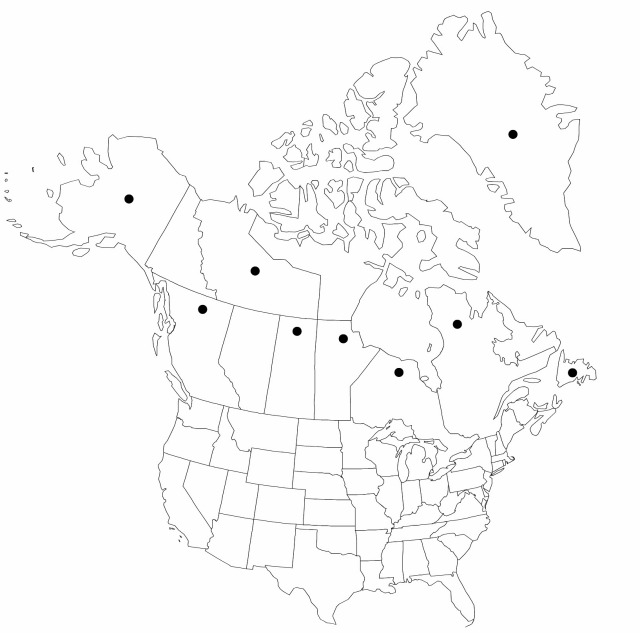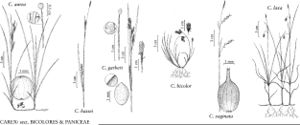Carex bicolor
Fl. Pedem. 2: 267. 1785.
Culms erect or procumbent, to 20 cm. Leaves: blades 2–6 cm × 1–2.5 mm. Inflorescences: proximal bracts scalelike or leaflike, sheathless or with sheaths to 5 mm; lateral spikes with 5–25 perigynia, usually fastigiate, occasionally proximal distant, dense, 5–12 × 3.5–5.5 mm; middle internodes 0.2–0.4 mm; terminal spike gynecandrous, usually less than 1/3 of flowers staiminate, sessile, 6–11 mm, 1.1–1.8 mm wide in staminate portion. Pistillate scales ascending, ovate-circular, 1.9–2.5(–3) × 1.1–1.7 mm, apex obtuse, sometimes slightly mucronate. Staminate scales usually black or, rarely, dark brown with green midvein and hyaline margins, oblong-ovate, 2–3.5 mm, apex obtuse. Perigynia ascending, white, elliptic-ovate, 1.8–3 × 1–1.8 mm, densely papillose. Achenes obovate, 1.4–2 × 1–1.6 mm. 2n = ca. 52.
Phenology: Fruiting summer.
Habitat: Moist tundra, usually calcareous, rocks and soils
Elevation: 0–500 m
Distribution

Greenland, B.C., Man., Nfld. and Labr. (Nfld.), N.W.T., Nunavut, Ont., Que., Sask., Alaska, Europe, Asia.
Discussion
Selected References
None.
